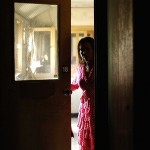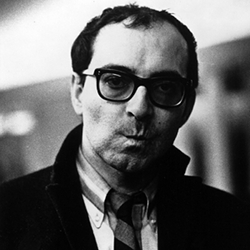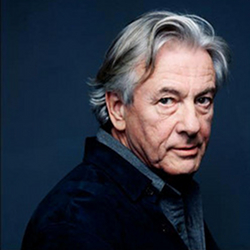
MoMA Documentary Fortnight 2014 Review: Campaign 2 (2013) - NP Approved

Cast: Kazuhiko Yamauchi, Sayuri Yamauchi, Yuki Yamauchi
Director: Kazuhiro Soda
Country: Japan | USA
Genre: Documentary
Official Site: Here
Editor’s Notes: The following review is part of our coverage for Museum of Modern Art‘s Documentary Fortnight 2014 which runs from February 14th to February 28th. For more information visit www.moma.org and follow MoMA on Twitter at @MuseumModernArt.
For his debut documentary feature Campaign (2007), Kazuhiro Soda followed the city council election campaign of Yamauchi Kazuhiko in Kawasaki, 2005. Though with no political background/experience, Yamauchi was backed by the powerful Liberal Democratic Party (LDP) and so managed to win a seat in the city council on behalf of the LDP. In Campaign 2, Soda accompanies Yamauchi again during another campaign just a few days after he decides to run for office in his home district of Miyamae, Kawasaki, and after twenty-plus days had passed since the Fukushima nuclear reactor catastrophe in March 2011. This time, however, Yamauchi is no longer affiliated with the LDP. He is an independent, nonpartisan candidate; and that is the way he wants it. Similar to Yamauchi’s character but in terms of documentary style, Soda presents an independent and keen, but also droll eye on the proceedings. The film’s subtitle, ‘Observational Film #5,’ is descriptive of Soda’s preferred documentary approach, although in truth he is more observational and participatory since he does not efface himself from the film and instead interacts with people. Armed with the help of Yamauchi and some of his opponents (among them, rather involuntarily), Soda produces a truly perceptive and candid slice-of-life of Japanese local politics and election protocol, and such a pleasurable one that makes its 150-minute running time an effortless watch.
Crucial to the engaging aspect of Campaign 2 is the close, comfortable relationship between Soda and Yamauchi. Their ease with each other stems from the fact that it is their second film together and they had been university classmates.
Crucial to the engaging aspect of Campaign 2 is the close, comfortable relationship between Soda and Yamauchi. Their ease with each other stems from the fact that it is their second film together and they had been university classmates. (As such, Yamauchi’s wife and their three-year-old son Yuki are also relaxed with Soda and his camera.) Such easygoing rapport is endearing. From the beginning they converse off-the-cuff while Yamauchi is on the move, with Soda’s voice (and oftentimes chuckles) plainly heard behind the camera. Soda keeps up with Yamauchi as best he can because he is relentless. He never stays still for too long since he drives around to see the state of his campaign posters, and fix them if need be. The first third of the film involves Yamauchi doing just that. While doing so, he speaks forthrightly of his policies (e.g. no to nuclear energy, tax increases, and costly campaigns) and reasons for running, to Soda, his journalist friend or a member of the community. The latter two conversations in particular are greatly revealing about his character and the kind of sociopolitical conditions (or lack thereof) in which the discussion and debate that he desires could take place.
 Yamauchi’s slogan in his campaign poster best encapsulates both his policies and reasons: ‘Throw Your Anger At Politics!’ He explains, ‘I’m running because I’m angry,’ because no one talks about the nuclear disaster; rising radiation levels; and the need to reconsider energy policy, among other matters. Such issues are taboo among the government, bureaucrats, mainstream media, and politicians alike. But as a former member of the LDP, Yamauchi feels responsible since the LDP has been pro-nuclear. Yamauchi distinguishes himself from his opponents with his DIY non-campaign, meaning no endorsements; no engaging in traditional campaign gestures that we witness his opponents do (wear a name sash; stand in areas with busy foot traffic, greet people, and hand out fliers or make speeches with a mic in a plaza; and no indulgent expenses such as campaign cars or an election office). Instead he limits his election expenses to posters and postcards, and partly campaigns through the internet. Thus he is angry, but productively and economically so. He translates his anger into energy that makes possible all the legwork and talking required, and frequently into laughter. At times, one wonders if he is really laughing or laughing-crying in the face of it all. Yamauchi’s combined anger, energy, and laughter are infectious; with his ‘outsider’ status as an independent candidate, they enable a critical, insightful comparative look between traditional and radical campaigning.
Yamauchi’s slogan in his campaign poster best encapsulates both his policies and reasons: ‘Throw Your Anger At Politics!’ He explains, ‘I’m running because I’m angry,’ because no one talks about the nuclear disaster; rising radiation levels; and the need to reconsider energy policy, among other matters. Such issues are taboo among the government, bureaucrats, mainstream media, and politicians alike. But as a former member of the LDP, Yamauchi feels responsible since the LDP has been pro-nuclear. Yamauchi distinguishes himself from his opponents with his DIY non-campaign, meaning no endorsements; no engaging in traditional campaign gestures that we witness his opponents do (wear a name sash; stand in areas with busy foot traffic, greet people, and hand out fliers or make speeches with a mic in a plaza; and no indulgent expenses such as campaign cars or an election office). Instead he limits his election expenses to posters and postcards, and partly campaigns through the internet. Thus he is angry, but productively and economically so. He translates his anger into energy that makes possible all the legwork and talking required, and frequently into laughter. At times, one wonders if he is really laughing or laughing-crying in the face of it all. Yamauchi’s combined anger, energy, and laughter are infectious; with his ‘outsider’ status as an independent candidate, they enable a critical, insightful comparative look between traditional and radical campaigning.
Campaign 2 provides a distinct and timely perspective of Japanese local elections, which relate to Japanese politics on a national and even international level.
Soda aids Yamauchi in this comparative look, for instance, when his camera witnesses one of Yamauchi’s opponents, Soeda, mention in his speech that he is changing the way campaigning is done—while he wears his name sash, speaks into a mic in a public area, has a campaign car, and corners passersby to shake hands. In fact, Soda is astute to not stick with Yamauchi all the time. He points his camera to other candidates throughout the film. Most remember him from Campaign and speak affably with him, while a few are less tolerant. Among the former is Oda, a man with a commanding and dignified bearing. He gives a detailed, illuminating description of how local elections operate for candidates affiliated with a party, their glaring constraints, and his desire to change election laws (prompting him to later say to Yamauchi directly that what he is doing is revolutionary). Moreover, Soda films some purely observational moments that are quiet, contemplative contrasts to the election-speak and Yamauchi’s bustling but still related to the issues at hand: children at a park; people going about their day, some of whom wear masks; newspaper and ad headlines about the nuclear disaster in a train. Even the night when Soda accompanies Yamauchi and his family for his birthday dinner coincides with a trip to Tokyo to meet a governor candidate and listen to his campaign speech.
Campaign 2 provides a distinct and timely perspective of Japanese local elections, which relate to Japanese politics on a national and even international level. But perhaps more importantly, in the process it creates a much-needed space to talk about these issues and more in the absence of one.
Related Posts
![]()
Rowena Santos Aquino
![]()
Latest posts by Rowena Santos Aquino (see all)



























